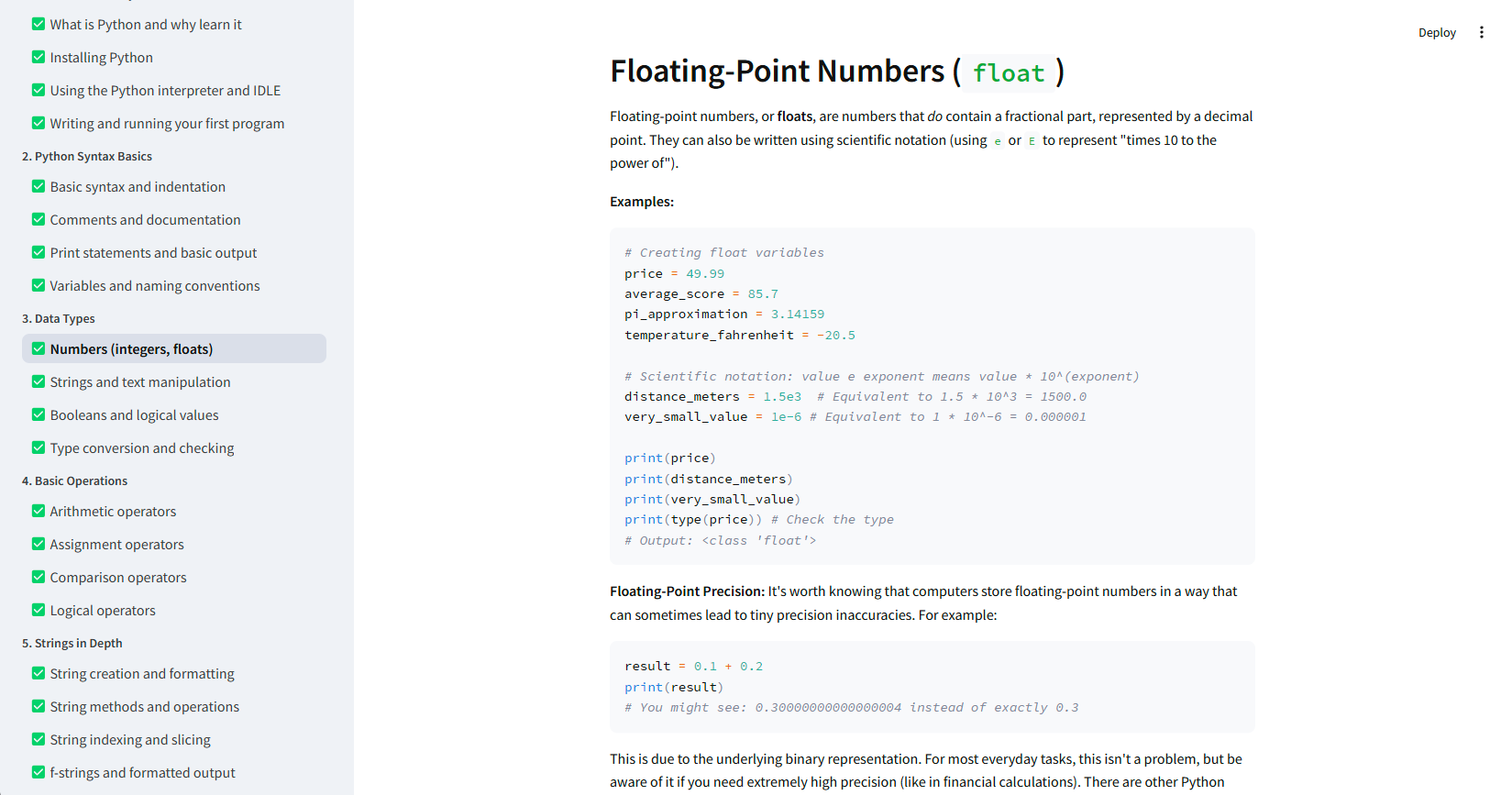The New Era of Learning Python
Master Python with our groundbreaking course for beginners, featuring an integrated AI assistant to guide you, provide instant feedback, and help you conquer coding tasks.

Master Python with our groundbreaking course for beginners, featuring an integrated AI assistant to guide you, provide instant feedback, and help you conquer coding tasks.

Learn effectively with structured lessons, hands-on coding tasks, and revolutionary AI assistance built right into your learning experience.
Get unstuck instantly! Ask questions, clarify doubts, and receive personalized guidance 24/7 from your integrated AI coding companion.
Start from scratch with clear, step-by-step lessons specifically designed for those with zero prior coding experience.
Apply what you learn immediately with practical coding exercises after each topic. Your AI assistant is there to help if you need a nudge.
Stay motivated and see how far you've come. Easily track your completed lessons, mastered concepts, and task achievements throughout your learning journey.
Join hundreds of beginners learning Python the smarter, AI-assisted way.
"Starting Python seemed challenging, but this course explained things clearly. The AI assistant was really useful for getting hints on the practice tasks whenever I needed clarification, which helped build my confidence."
"Other courses didn't quite work for me, but I'm making steady progress here. Getting quick AI help directly on the coding tasks when I encounter issues makes a noticeable difference in moving forward."
"The AI helper is very practical during the coding exercises. It helps clarify errors efficiently, which definitely supports the hands-on learning approach and improves understanding."
Choose the plan that fits your learning pace and AI usage needs. Cancel anytime.
Get started with the essentials and moderate AI assistance.
£15 /month
Buy planMost popular
Ideal for active learners using the AI assistant regularly.
£25 /month
Buy planFor power learners needing extensive AI assistance.
£30 /month
Buy planLifetime course access and a generous AI query allowance.
£120 one-time
Get Lifetime AccessExplore the structured curriculum covering foundational to advanced Python concepts, all designed for beginners. Click modules to expand.